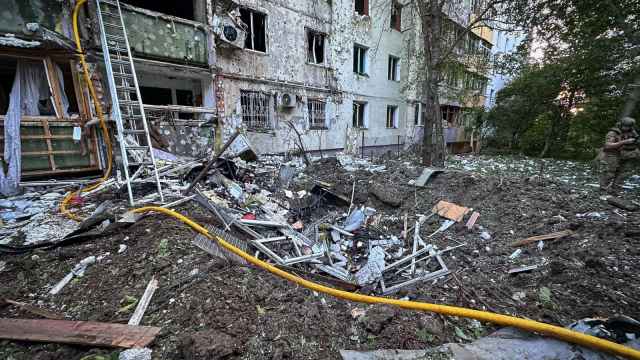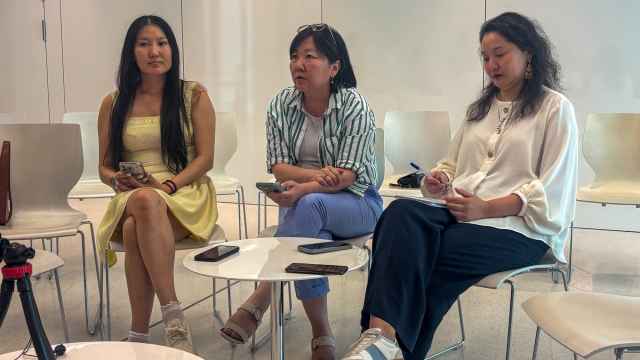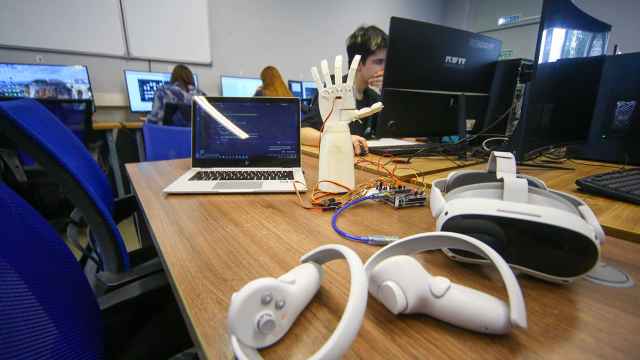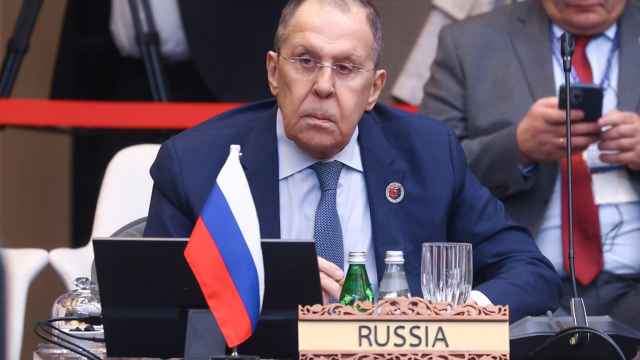A Russian court will start the posthumous trial of dead anti-corruption lawyer Sergei Magnitsky next week after ignoring calls by his family and lawyers to abandon a case they say is absurd and politically motivated.
Magnitsky's death in custody in 2009, after he had complained repeatedly of being denied medical treatment, has damaged Russia's image and strained ties with the United States.
But Moscow's Tverskoi Court said after a pretrial hearing on Monday that the trial itself would open on March 11, a court spokeswoman said.
Lawyers say Magnitsky, who was 37 and was accused of tax fraud after investigating similar claims against his accusers, will be the first dead person to go on trial in Russia.
"The trial is indeed absurd," lawyer Alexander Molokhov said after the court rejected his application to defend Magnitsky.
The court had already appointed a legal team to defend Magnitsky after his own lawyers refused to take part in a trial which his relatives say is politically motivated.
Magnitsky's mother, Natalya, has said previously that the case is a farce and her lawyer Nikolai Gorokhov likened the proceedings to "dancing on the grave of a dead man."
The allegations that Magnitsky, who was a lawyer at Hermitage Capital Management investment fund, had committed tax fraud were made shortly after he accused state officials of a $230 million theft by setting up bogus tax refunds.
Critics say the trial is meant to discredit Magnitsky as well as Hermitage owner William Browder, who will be tried in absentia.
President Vladimir Putin has said that Magnitsky, who was 37, died of heart failure but his presidential human rights council has said the lawyer was probably beaten to death. No one has been convicted over Magnitsky's death.
His death has also weighed on ties between Moscow and Washington. U.S. lawmakers passed a bill last year that attempts to punish Russians who were involved in his case and are accused of violating human rights.
Russia, in turn, passed similar measures aimed at punishing Americans suspected of violating human rights. It also banned U.S. families from adopting Russian children.
Related articles:
A Message from The Moscow Times:
Dear readers,
We are facing unprecedented challenges. Russia's Prosecutor General's Office has designated The Moscow Times as an "undesirable" organization, criminalizing our work and putting our staff at risk of prosecution. This follows our earlier unjust labeling as a "foreign agent."
These actions are direct attempts to silence independent journalism in Russia. The authorities claim our work "discredits the decisions of the Russian leadership." We see things differently: we strive to provide accurate, unbiased reporting on Russia.
We, the journalists of The Moscow Times, refuse to be silenced. But to continue our work, we need your help.
Your support, no matter how small, makes a world of difference. If you can, please support us monthly starting from just $2. It's quick to set up, and every contribution makes a significant impact.
By supporting The Moscow Times, you're defending open, independent journalism in the face of repression. Thank you for standing with us.
Remind me later.





